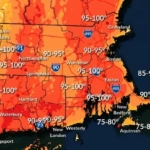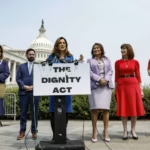In recent months, the international community, including the United States, Canada, the UN, and the EU, has intensified sanctions against Haitian gang leaders who terrorize the population and destabilize the country. These sanctions range from travel bans to freezing foreign assets.
The latest sanctions were adopted by the European Union, which announced on July 15, 2025, that it had added three powerful Haitian gang leaders to its sanctions list for actions threatening the country’s peace, stability, and security. These include Micanor Altès, leader of the Wharf Jérémie gang, responsible for the massacre of 207 people in December 2024; Christ-Roi Chéry, leader of the Ti Bwa gang; and Jeff Larose, leader of the Canaan gang, both accused of forcibly recruiting children, conducting kidnappings, committing homicides, and perpetrating sexual and gender-based violence.
Under these measures the three gang leaders will be subject to asset freezes, travel bans to the EU, and prohibitions on directly or indirectly receiving funds or economic resources.
In October 2022, the UN Security Council adopted a sanctions regime against Haitian gangs, including asset freezes, travel bans, and arms embargoes. Countries such as the United States, Canada, the Dominican Republic, and the European Union followed suit, targeting notorious figures. These sanctions aim to financially strangle criminal groups and limit their influence.
However, gang violence has not decreased. Instead, armed criminal groups have grown stronger, expanding their control over new territories, particularly in Port-au-Prince, where more than 80% of the capital is under their control. While international sanctions aim to isolate gang leaders, their real impact remains questionable.
Criminal networks operate through informal financial circuits, making asset freezing only partially effective. Gangs derive most of their income from extortion, demanding regular payments from businesses, merchants, and even street vendors in exchange for “protection” or permission to operate within their spheres of influence. They also control informal economic activities such as public transportation by establishing toll systems, particularly on national highways, and engage in looting stores, warehouses, and cargo shipments. According to authorities, drug, weapons, and organ trafficking also constitute significant revenue sources for certain gangs.
Despite targeted measures, insecurity persists in Haiti, raising questions about the actual effectiveness of sanctions.
Experts believe that while taking strong measures against gang leaders are necessary, they are insufficient on their own. They argue that without coordinated action on the ground to dismantle gangs, sanctions will remain merely cosmetic measures.
Other observers advocate for a comprehensive strategy that includes strengthening Haitian police forces, combating corruption that facilitates gang impunity, and implementing a genuine political process to resolve the crisis. Without such measures, Haiti risks remaining trapped in an endless cycle of violence.







